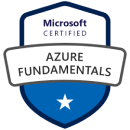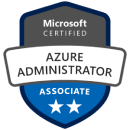
Harnessing the Power of Change Data Feed
As businesses increasingly rely on data to drive decisions, the need to efficiently track and manage changes within data systems has become paramount. In data-intensive environments, it’s crucial to monitor and react to changes in data as they occur. Change Data Feed (CDF) is a powerful feature that addresses this need by enabling the continuous tracking of data modifications. When combined with Delta Tables in Microsoft Fabric Lakehouse, CDF offers a robust solution for real-time analytics, auditing, and data synchronization.
What is Change Data Feed (CDF)?
Change Data Feed is a mechanism that allows you to capture and track changes in your data over time. This includes inserts, updates, and deletes that occur in your tables. With CDF, you can easily query the changes in your data, enabling you to perform incremental processing, maintain audit logs, and synchronize data across different systems.
Why Use Change Data Feed on Delta Tables in Microsoft Fabric Lakehouse?
Microsoft Fabric Lakehouse combines the strengths of Delta Tables with the capabilities of Change Data Feed, providing an integrated solution that offers several advantages:
- Real-Time Data Processing: With CDF, you can track changes in real-time, enabling immediate processing and analysis of data updates.
- Efficient Data Syncing: Synchronize data across multiple systems or applications without needing to process the entire dataset repeatedly.
- Simplified Data Auditing: Maintain a complete history of changes to your data, making it easier to audit and comply with regulatory requirements.
- Optimized Resource Utilization: By processing only the changed data, you reduce computational overhead and storage costs, leading to more efficient use of resources.
Implementing Change Data Feed on Delta Tables in Microsoft Fabric Lakehouse
First, you need to set up your environment by creating a data lakehouse, configuring permissions, and integrating Delta Lake. Next, create a Delta Table and enable CDF by modifying the table properties with the following command:
ALTER TABLE my_delta_table
SET TBLPROPERTIES (delta.enableChangeDataFeed = true);
This will start tracking all changes, including inserts, updates, and deletes. You can now query the changes captured by CDF, using the following command:
SELECT _change_type, id, name, value, timestamp
FROM table_changes(‘my_delta_table’, 0)
ORDER BY timestamp;
This query will return all the changes that have occurred in your Delta Table, allowing you to analyze the data modifications.
Applying CDF in Real-World Scenarios
CDF can be applied in various real-world scenarios. For instance:
- Data Warehousing: Use CDF to incrementally update your data warehouse, ensuring that only the changed data is processed, leading to faster ETL processes.
- Data Auditing: Maintain a historical record of all data changes, which is particularly useful for compliance with regulations such as GDPR or HIPAA.
- Real-Time Analytics: Enable real-time dashboards and analytics by streaming only the changes in data to your analytical tools, providing up-to-date insights without reprocessing the entire dataset.
Best Practices for Implementing Change Data Feed
When implementing CDF on Delta Tables in Microsoft Fabric Lakehouse, consider the following best practices:
- Optimize Data Partitioning: Partition your Delta Tables based on frequently queried columns to improve query performance, especially when dealing with large datasets.
- Regularly Monitor CDF: Keep an eye on the performance of your CDF-enabled tables. As data volume grows, ensure that the system remains efficient by optimizing queries and storage.
- Implement Access Controls: Ensure that only authorized users can enable, modify, or query CDF to protect sensitive data.
Change Data Feed on Delta Tables is a game-changer for businesses that need to track and manage data changes efficiently. By leveraging this feature within Microsoft Fabric Lakehouse, organizations can unlock powerful capabilities for real-time analytics, data synchronization, and auditing. Whether you’re managing a data lake, running a data warehouse, or maintaining compliance with regulatory standards, CDF on Delta Tables provides a flexible and scalable solution that meets the demands of modern data management.










